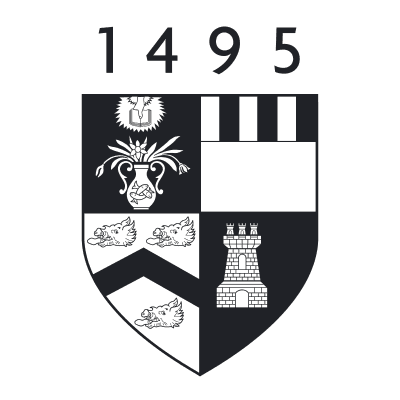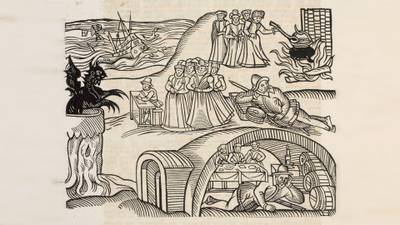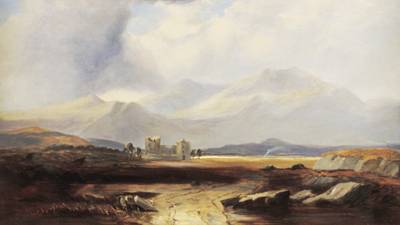Study Jacobite Scotland online with expert historians.
Explore one of the most romanticised and mythologised subjects in Scottish history: the Jacobite cause.
In many ways, it’s impossible to understand the events of the eighteenth century, in Scotland and in Britain, without understanding the Jacobite movement, its supporters, and its opponents.
In this flexible online course, you’ll study Scotland’s complex relationship with Jacobitism, from the revolution of 1688–90 to the early nineteenth century.
With expert guidance, you’ll examine:
- the origins of Jacobitism
- its key principles and supporters
- how Jacobitism endured and was contested over the eighteenth century
- important legacies of Jacobitism in Scotland
- the ongoing ‘romanticisation’ of Jacobitism as a phenomenon.
Who can join this online Jacobite Scotland course?
This distance-learning course is for anyone who has a professional or personal interest in the history of Jacobitism in Scotland, and how Jacobitism has shaped crucial aspects of Scottish identity to the present day.

Build credits towards a Masters degree
This online course is part of:
You can use the credits you earn on this short course towards this MLitt qualification.
What you’ll study
In this online course, you will study:
- how Jacobitism emerged, endured and was contested across the first half of the eighteenth century
- how individuals, families and communities became entangled with the Jacobite cause
- how insurrection is dealt with by religious and secular authorities, and the impact of this on underground movements
- the ways in which underground movements attract vastly different groups of people to their cause, and the struggles of keeping such multi-faceted movements together
- the ways in which Jacobitism is remembered, or misremembered, and how it has contributed to a version of Scottish identity.
Topics you’ll cover
You’ll cover various aspects of the history of Jacobitism in Scotland, including:
- the origins of Jacobitism and the development of Jacobite ideology
- Jacobitism and Union
- the major risings of 1715 and 1745, alongside minor risings and plots
- opposition to Jacobitism in Scotland
- Jacobite material and visual cultures
- the rehabilitation of Jacobitism into the nineteenth century.
By the end of this course, you’ll be able to...
-
Demonstrate detailed knowledge of the ideologies and beliefs associated with Jacobitism and opposition to it.
-
Evaluate historiographical interpretations of Jacobitism and assess its significance as a movement.
-
Assess Jacobitism in Scotland in its broader contexts of British, Irish, European and Atlantic history.
-
Critique and compare the key debates and controversies in the history of Jacobitism in Scotland.
-
Analyse different cultures of Jacobitism, their affect on perceptions of Jacobitism as a movement, and how these perceptions have changed over time.
-
Engage in intellectual debate and constructive criticism through written assessments, seminar discussions, and independent study.
-
Analyse different types of primary and secondary sources to discuss and compare debates and controversies related to this topic.
Study Jacobite Scotland online with the University of Aberdeen

1st in Scotland for History
Our History Department is rated 1st in Scotland and 8th in the UK for teaching satisfaction in the Guardian University Guide 2024.

Over 525 years of excellence
Study with the fifth-oldest university in the English-speaking world, founded in 1495.

Top 20 in the UK for History
We’re rated top 20 in the UK for History in The Times and Sunday Times Good University Guide 2024.
How you’ll study
Online learning
This distance-learning Jacobite history course is delivered flexibly, 100% online.
You can learn with us anywhere in the world, no student visa required, and manage your study hours to suit you.
Your teaching
This course is taught at Masters level.
Teaching is delivered through MyAberdeen, our online Virtual Learning Environment (VLE). It holds all the materials, tools and support you’ll need in your studies. Take a look around MyAberdeen.
You can access your learning materials on computer, smartphone and laptop, 24 hours a day. You’ll find a range of resources available, including:
- video lectures to stream and download
- online seminars
- reading materials
- discussion boards with your tutors and peers
- the online resources of our award-winning Sir Duncan Rice Library.
Live online seminars
Each week, your course coordinator will host a one-hour live online seminar. In these sessions, you’ll discuss the week’s material and bring your own questions and ideas to the topic. Seminars will be recorded, so you can watch later if you cannot attend.
Your tutors
This course is delivered by the Department of History within our School of Divinity, History, Philosophy, and Art History.
You’ll learn from Dr Clare Loughlin, Lecturer in the Jacobite World.
This course is assessed online.
You’ll be assessed throughout your studies via:
- a historiographical review (worth 30% of your final course grade)
- a 3,000-word essay (60%), and
- your weekly participation in online discussion forums (10%).
Live online sessions
This course features one live online session each week. Each session is scheduled to last for around one hour.
Dates and times will be organised flexibly at the start of the course. Your course coordinator will consider everyone’s circumstances and time zones before setting up live session times.
All live sessions will be recorded so that you can access them after they have taken place.
Study hours
This course totals approximately 300 hours of study and assessment time.
That’s around 15 – 20 hours per week in regular topic work, with more time required around assessments.
This is an indicative guide to the time required for a typical student at this level to achieve the learning outcomes. This includes time for independent study, as well as teaching and assessments.
You can largely set your own study hours to cover the materials. MyAberdeen is available 24/7, so you can log in and study when it suits you.
Activities at fixed times
There will be live online sessions at fixed times, and assessments with deadlines. But otherwise, you can access and work through your course at your convenience.
Our first-class support structure will ensure that you aren’t alone in your studies. You’ll have contact with your coordinator via email, MyAberdeen and Microsoft Teams. You can use social media and discussion boards to chat with your fellow students too.
We provide a wide range of services to support you in your studies and beyond:
- Careers and Employability Service
- Disability support
- IT support
- Library support
- Student Support Service – help with finances, stress, wellbeing and non-academic issues
- Student Learning Service – study support, with advice sessions available via phone or Skype
- Aberdeen University Students’ Association (AUSA) – run by students for students
- Toolkit – clever apps and free training that can make your study life easier
Wherever you are in the world, you’ll feel part of our very special Aberdeen learning community.
Your course coordinator

Dr Clare Loughlin
Clare is a Lecturer in the Jacobite World. She is a historian of early modern Scotland, with particular interests and expertise in histories of anti-Catholicism, religious prejudice, and identities in the seventeenth and eighteenth centuries.
View Clare’s profileWhere this will take you
Towards a Masters degree
You’ll earn 30 credits at Masters level (SCQF Level 11) with this course. You can use these credits towards our online:

Masters in Scottish Heritage
Explore the rich history, art and philosophy of Scotland and its people. Access rare archive treasures and award-winning online teaching, with this flexible online Masters.
View MLitt Scottish HeritageBuild your learning
Continue to develop your knowledge of Scottish history, and earn further Masters-level credits, with our growing range of online short courses:
- Approaches to Research: Archives and Sources
- Pandemics and Plagues: History’s Deadliest Diseases
- Scotland: A Millennium of History
- Scottish Church History: From Columba to Graham
- Scottish Visual History
- Scottish Witch-Hunting and the Rise of Protestant Culture 1590-1690
- The Philosophy of the Scottish Enlightenment
- The Scottish Diaspora
Careers
This course offers career-enhancing skills applicable in a range of professions, including teaching, tourism, and the museum and heritage industries.
You’ll gain transferable skills in debate, critical thinking, and constructive criticism through written work, interactive discussions, and independent study.
Continuing professional development (CPD)
Your employer or professional institute may recognise this course for CPD hours. Talk to your employer or institute to find out more.

Free career support
Access our free careers service while you study.
- 1:1 appointments
- CV checks
- Interview prep
- Job opportunities
Choose the University of Aberdeen for flexible online heritage courses

Flexible
Flexible hours and 24/7 access, so you can study when it suits you.

You’re in expert hands
We’ve been delivering online and distance learning for decades.

20% alumni discount
University of Aberdeen alumni get 20% off this online course.
Entry requirements
Entry requirements
We welcome students from all over the world.
This course has no formal entry requirements. You do not need to provide proof of your qualifications.
But you do need to check the entry guidance above to understand the level of teaching delivered, to decide if this course is right for you.
If you do not have qualifications from the UK, check the equivalent teaching level for your country.
Visa requirements
You do not need a student visa to study online with us.
English language requirements
Teaching is delivered in English.
You do not have to provide proof of your English language skills to join this course. But we want to make sure that you can use English well enough to study successfully.
Recommended level of English
This course uses our Postgraduate Higher level of English language proficiency.
These are our Postgraduate Higher requirements, and these are minimum scores.
IELTS Academic, IELTS UKVI Academic, and IELTS Online (not IELTS Indicator or IELTS General Training)
- 6.5 overall
- 5.5 for listening and speaking
- 6.0 for reading and writing
TOEFL iBT and TOEFL iBT Home Edition
- 90 overall
- 17 for listening
- 21 for reading
- 20 for speaking
- 21 for writing
- TOEFL DI code is 0818
Cambridge English: B2 First, C1 Advanced, or C2 Proficiency
- 176 overall
- 162 for listening and speaking
- 169 for reading and writing
LanguageCert Academic/LanguageCert Academic SELT
- 70 overall
- 60 for listening and speaking
- 65 for reading and writing
LanguageCert International ESOL B2 Communicator (Written and Spoken) – Online / In-centre
- Overall High Pass
- 33 for listening, reading and speaking
- 38 for writing
Oxford ELLT Digital – English Language Level Test Online
- 7.0 overall
- 5.0 for listening and speaking
- 6.0 for reading and writing
PTE Academic (online test not accepted)
- 62 overall
- 59 for listening, reading, speaking and writing
Duolingo – tests taken from 1 July 2024 onward
- 120 overall
- 95 for listening and speaking
- 105 for reading and writing
University of Aberdeen English Pre-sessional Programme (PSE)
- Pass
- Valid for one year. Refresher can be offered if out of date
Pre-sessional academic English preparation programmes undertaken at other UK universities
- Pass at an equivalent of 6.5 (C1)
- B2 in all four skills
- Certification must be within one year prior to the start of your course
For more information about language qualifications see our English Language Requirements page.
You will need access to:
A computer (PC, laptop or Mac) operating on either:
- Windows 10 or later
- macOS 10.15 (Catalina) or later.
Most teaching materials are smartphone- and tablet-friendly. But we recommend a proper laptop or desktop for completing assignments comfortably.
Reliable internet access
We recommend:
- a wired connection
- a minimum download speed of 2 Mbps so you can take part fully in live sessions.
Speakers or headphones
- We recommend a headset with built-in microphone and earphones if you’re likely to study in an environment with background noise.
- A webcam is optional, but you may like to use one for some interactive sessions.
Software
We’ll give you access to Office365 applications. This means you can use online versions of Microsoft Word, Excel, and PowerPoint and install these programs on up to five personal devices.
If your course requires specialist software, we’ll provide you with access to this and a licence that lasts throughout your studies.
See our detailed IT requirements for more information.
When you study with us, you can expect a first-class support structure so that you’re never alone in your studies.
But learning online does mean you have to motivate yourself and manage your own time.
Your most important commitment will be time – the time to work through, reflect on and understand your teaching materials.
Before you start a course that involves a high degree of independent study, we recommend looking at the time you will be able to devote to your studies each week:
- Be realistic
- Create a weekly schedule as a guide
If you have any questions about studying online, get in touch with our friendly team. We’re here to help.
Fee payment
Your course fee needs to be paid in full before you start your course.
We accept payment via Visa Debit, Visa Credit and Mastercard.
Ways to save
You may be able to get help funding this course via:
- discounts – if any discounts are available for this course, they’ll appear in the section below
- employer sponsorship – we accept full and partial fee payments from sponsors.
Find out more about funding options.
Student card
All our students are entitled to a University of Aberdeen student card. This gives you access to a range of student discounts around the city and online.
Learning resources
Access to all the books and resources you need are included in your tuition fee. They’ll be made available to you online and you do not have to buy your own copies.
Printing
You may wish to set aside a small budget for printing, depending on how you like to work.
This course has no formal entry requirements. You decide if it’s suitable for you.
The course is delivered at Masters level. At this level, you’d usually have at least
- a 2:2 UK honours degree (or equivalent), or
- relevant experience that supports this level of study.
Apply for this course





















